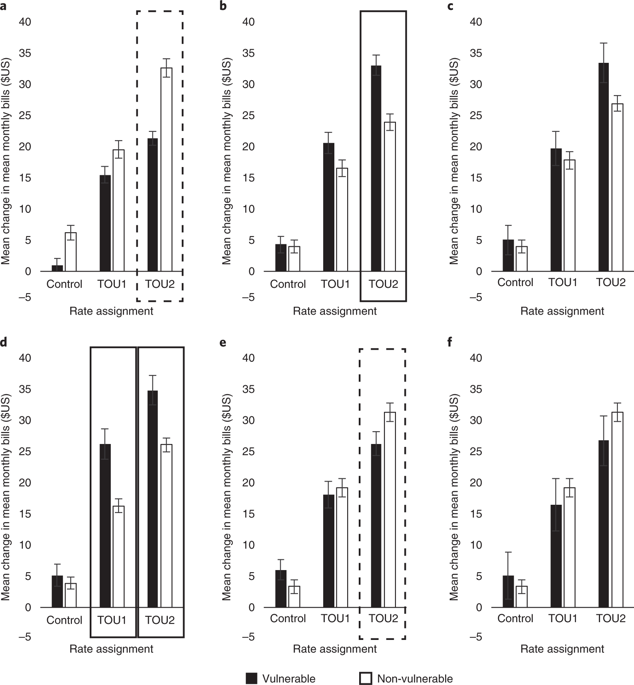Nature Energy ( IF 49.7 ) Pub Date : 2019-12-16 , DOI: 10.1038/s41560-019-0507-y Lee V. White , Nicole D. Sintov

|
Demand-side response (DSR) measures, which facilitate the integration of high shares of intermittent renewable generation into electric grids, are gaining prominence. DSR measures, such as time-of-use (TOU) rates, charge higher rates during high-demand ‘on-peak’ times. These rates may disproportionately impact the energy bills and health of vulnerable households, defined as those who face greater energy needs combined with greater social and financial pressures. Here we examine 7,487 households that took part in a randomized control TOU pilot in the southwestern United States. We found that assignment to TOU rather than control disproportionately increases bills for households with elderly and disabled occupants, and predicts worse health outcomes for households with disabled and ethnic minority occupants than those for non-vulnerable counterparts. These results suggest that vulnerable groups should be considered separately in DSR rate design, and future pilots should seek to determine which designs most effectively avoid exacerbating existing energy injustices or creating new ones.
中文翻译:

需求方应对措施对健康和财务的影响在不同的社会人口学人群中有所不同
需求侧响应(DSR)措施日益受到重视,这些措施促进将大量间歇式可再生能源发电整合到电网中。DSR措施(例如使用时间(TOU)费率)在高要求的“高峰”时间内收取更高的费率。这些费率可能对脆弱家庭的能源账单和健康产生不成比例的影响,脆弱家庭被定义为那些面临更大能源需求以及更大的社会和经济压力的家庭。在这里,我们调查了参与美国西南部随机对照TOU试点的7487户家庭。我们发现,分配给TOU而不是控制权会极大地增加有老年人和残疾人居住的家庭的账单,并预测有残疾人和少数民族居住的家庭的健康状况要比没有脆弱人群的家庭要差。









































 京公网安备 11010802027423号
京公网安备 11010802027423号